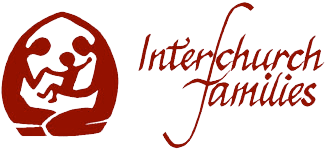CHURCH MEMBERSHIP
New Paragraph
Like all Christian families, interchurch families represent the Body of Christ in their homes, and can, therefore, be described, in the language of Vatican II, as a “domestic church”. However, although they form one church at home, the partners remain faithful members of two divided churches. As marriage partners they want to share all that is of value in each other’s lives and, as Christian marriage partners, this includes the riches of their respective ecclesial communions. Sadly though, very few churches allow the partners to share in formal or “canonical” membership of their partner’s church as full membership of two communions is not currently permitted.
Where possible, interchurch partners join in the life and worship of their partner’s church as well as their own. In doing so, most come to appreciate the distinctive witness of their partner’s church community and begin to feel welcome and at home in it. Even if they are unable to become full members, they often find themselves accepted as part of the fellowship of that worshipping community, whilst remaining a full member of their own church. Indeed, in many cases partners undertake particular roles or responsibilities in the life of each other’s church (e.g. leading youth work, singing or playing music, reading lessons, joining the welcome team).
Interchurch families often describe this experience of participating in the life of two ecclesial communions as ‘double belonging’ – or similar expressions in other countries such as, in Poland, ‘double solidarity’. No matter how deeply these descriptions may be felt they cannot be understood as a formal category of dual membership but rather as an expression of a lived reality of experience.
Double-belonging
Joined in the Sacrament of Marriage...
Double belonging” is a term used by some interchurch couples and families to describe their lived experience in their marriage and family life. It is not precise but is used for want of a better one. In this brief article a Roman Catholic wife from Cornwall explains what “double belonging” has meant for her family
For us, double belonging focuses very sharply what it is to be joined by the sacrament of matrimony. Our marriage means that we share each other without reservation, giving to each other our strengths and attractive qualities as well as our faults and weaknesses — conferring on each other an opportunity for growth and liberation because we live in an environment of constant love and commitment. Just as part of us is our extended families, our friends and respective communities, and of course our church families and traditions, so also for each of us the welcome into all of these communities has been a consequence of our union, and an overwhelmingly enriching one. Robert has discovered a perspective of the Roman Church which goes beyond the English experience both in terms of geographical and historical diversity to something much more culturally varied and developmental in nature. As for me, I have discovered the joy of a Church much more rooted in my own Cornish and Celtic culture and appreciate greatly its immediacy even in the small communities of this place — the Church of England is much more locally present. I have also been able to develop my relationship with Our Lady more fully in sharing attitudes which are different from the piety in which I was brought up.
But what level of belonging do we each acquire by virtue of our marriage? Robert is still an Anglican, and I am still a Roman Catholic and we would not pretend to have become the other. But just as neither of us becomes genetically part of each other’s family and yet find that we are not entirely separate either, our respective church communities likewise increasingly become something without which we are incomplete as worshipping and committed Christians.
It is indeed true that we bring our churches’ divisions into our marriage just as we bring our other sins, but it is our experience that the grace of the sacrament by which we live every day gives us a perspective on those divisions which enables us truly to know a degree of unity which is far, far greater than the areas which divide us. Inevitably then for us this unity is passed on to our son. The love, differences, misunderstandings which we share as a couple, in our extended families and our church families are all part of the legacy which we pass on. It is difficult for us to see how it could be otherwise. Within this context we feel that our spiritual need to share sacramentally is both serious and a special case. In the reality of our marriage God joins us in both body and spirit and so we feel that this sharing becomes essential, as an expression of unity already achieved as well as food for the ongoing journey.
Find out more - We’re here to help!
““We would like to help you as you decide how best to live out your commitment to each other as an interchurch couple”
